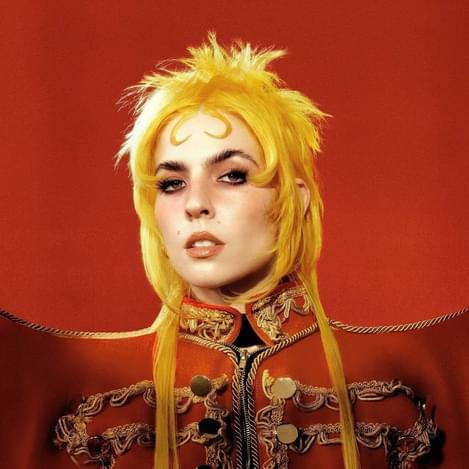Dorian Electra deserves a world of acclaim for Fanfare
"Fanfare"

A minimalist Dorian Electra is not.
Though, to be fair, their first two albums had already made that pretty clear. 2019’s Flamboyant was a thumping, glittering pickaxe to masculinity, paving the way for the opulent absurdity of 2020’s My Agenda. Their eclectic sound earned them the slightly ham-fisted term ‘hyperpop’ alongside the likes of Charli XCX and SOPHIE, but really their sound is resistant to any such labelling. Spanning time, space, and several sticky dance floors, their music offers a cutting social commentary set to a miscellanea of noise cranked up high. On Fanfare, it is parasocial relationships and internet-inflicted brain rot on the chopping block for dissection.
One thing that’s always been impressive about Electra is their range: their discography is a racket of oscillating vocal contortions thrashing against snarling guitars, glitching production and stomach-punching bass. Fanfare is much the same story, with Electra able to keep a strong enough grip on all the disparate parts to stop true chaos ensuing. “Sodom and Gomorrah” is the undeniable standout, channelling all the sultry power of Spearsian 00s pop with added guitar crunch. Inspired by the divine destruction of two sinful cities, the track is a hymn to queer reclamation – or, in Electra’s words, “a bratty, slutty, sexy song.”
It’s followed by “Puppet”: a characteristically bawdy cut, its acutely left-of-field instrumental burying a slightly mangled rendition of Beethoven’s “Für Elise” that, somehow, actually works. Later, the five and a half minute epic “Yes Man” laments the blind, mindless praise feeding parasocial relationships. At the outset it appears comparatively stripped back – but fear not, it soon descends into a bouncing echo chamber of sinister laughter and Electra’s pleads to “cut the fucking fanfare.”
Lyrically, Electra has an established practice of running sentiments of various sincerity through a Gen Z translator. It’s how we’re left with “touch grass / shake that ass” on their anthem for the chronically online (“Touch Grass”); on “Manmade Horrors,” the ruin of man is summarised with similar derision (“bought a Che Guevara shirt from Zara / on sale”). While, for the most part, Electra has happily rejected the trend for putting a thousand fried voice notes on an album, “Lifetime” does offer an aggrieved tip on the most ecologically conscious way to dispose of coffee grounds.
Their satirical, ludicrous sense of humour runs throughout the record, informing more than just the lyrics. For instance, the outro on the otherwise swaggering “anon” bravely asks the question, “what would happen if you put a drum beat in a blender?” Elsewhere, “Warning Signs” ends with Electra singing in the round over a building instrumental and marching drums, an unexpected recall to the emo classics. At almost every turn this record has a new surprise to offer, showing off an artist that can truly turn their hand to anything.
Fanfare is technically a matured sound from Electra’s sophomore outing, if only because there’s less literal screaming this time round. Nothing quite reaches the visceral, brain-rattling energy of “Ram It Down,” for instance, but that still leaves more than enough scope for Electra’s kaleidoscopic vision. Their third album is a triumph of creativity and organised chaos, confirming their status as a cult sensation.
Get the Best Fit take on the week in music direct to your inbox every Friday

Tunde Adebimpe
Thee Black Boltz

Julien Baker & TORRES
Send A Prayer My Way

Bon Iver
SABLE, fABLE





